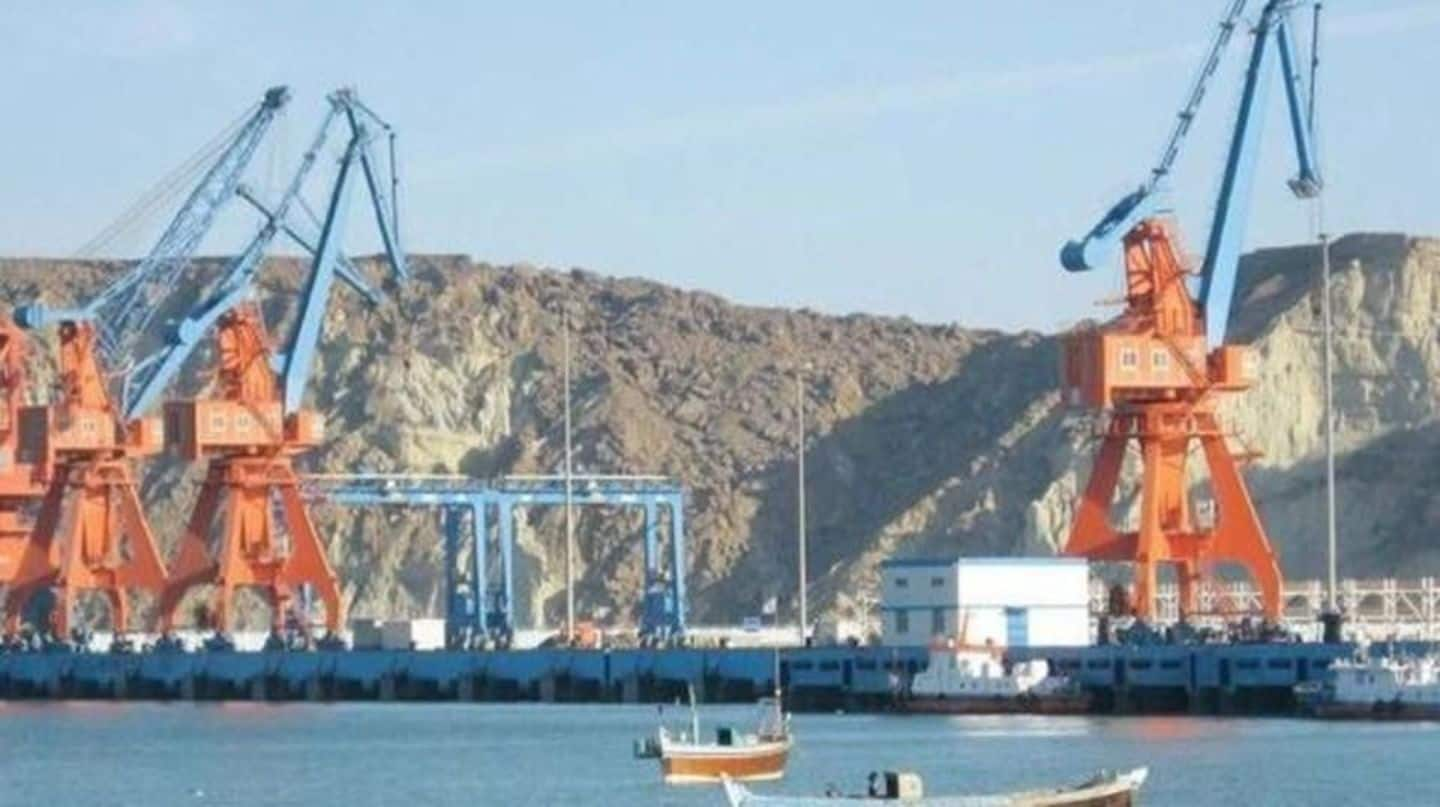
Why is the Gwadar port important to China and Pakistan?
What's the story
The Gwadar port located by the Arabian sea in Pakistan's Balochistan province is being developed by Pakistan in partnership with China. Situated in one of Pakistan's poorest provinces, Gwadar or "gate of the wind" is set to become a sprawling economic hub within the China-Pakistan Economic Corridor. However, Pakistan has to overcome numerous challenges for realizing its full economic potential. Here's more about it.
About
What is the China-Pakistan Economic Corridor?
The China-Pakistan Economic Corridor is an under construction, $46 billion development project which seeks to improve infrastructure in Pakistan. The project envisages the creation of energy pipelines, road-and-rail links between western China and the Pakistani port of Gwadar, and telecommunications infrastructure in Pakistan. Chinese Premier Li Keqiang and former Pakistani PM Nawaz Sharif announced the initiative on 22 May 2013 in Islamabad.
Significance
Gwadar: Why is it significant?
Gwadar occupies a central place in the schemes for the China Pakistan Economic Corridor (CPEC). It is also a key link between the land and maritime routes within China's ambitious One Belt One Road (OBOR) project. Moreover, Gwadar is strategically located near the Strait of Hormuz, where 20% of the world's petroleum trade passes through. It further enables China and Pakistan to encircle India.
Challenges
What are the challenges?
Balochistan, where Gwadar is located has been plagued by separatist-insurgency for decades. Since the beginning, numerous terrorists attacks on the project and Chinese laborers working on it have taken place. Moreover, people in Balochistan remain concerned over unequal distribution of economic benefits. Political parties within Pakistan have also voiced concerns over the project citing its various modalities.
Statement
Pakistani authorities: People of Gwadar will be the first beneficiaries
In an attempt to convince people about the benefits of the port project, Dostain Khan Jamaldini, chairman of the Gwadar Port Authority, said that the first beneficiaries would be the people of Gwadar. The first priority for the jobs will go to "Gwadaris, then to Balochis, then to the people of any part of Pakistan" says Sajjad Baloch, chairman of the Gwadar Development Authority.
Information
More operational challenges lie ahead
Security remains an overwhelming challenge. Additionally, authorities will have to proceed to resettle the people of Gwadar who largely rely on the fishing industry for their livelihood. Moreover, the area is currently plagued by a lack of water, electricity, road connectivity and skilled labor.